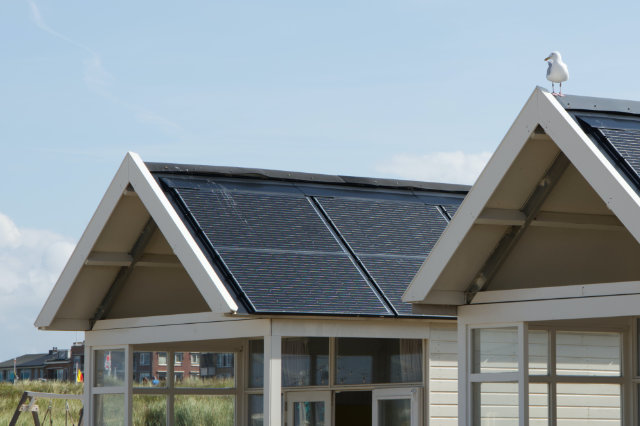Solar panels work by harnessing the energy of the sun and converting it to electricity for your home. The technology is safe and reliable, and has been around for decades. Here is the best part, you don’t need to be an electrical engineer to understand how it works! Let’s explore how your rooftop system will power your home.
Panels Absorb Sunlight
Solar panels are the most obvious component of your system. They sit on your roof and let the sun love them. The panels are made of silicon, a semi-conductive element that generates electrical current when sunlight touches it. Your panels will appear dark, even during the day, because they absorb sunlight in order to create power. Solar panels produce best on sunny days and generate less electricity on days when it is cloudy, rainy or snowy. The amount of electricity generated also depends on factors including temperature, time of day and the pitch and orientation of the panel. The more sunlight the panel can absorb, the more electricity it can generate. Talk to your solar installer about what panels are best for your roof.
Understanding Inverters
This electricity generated by your solar panels is called direct current (DC); it is similar to the type of electricity stored in batteries. It’s great for small independent loads, like flashlights, but is not suitable to connect to the grid, or to power large appliances in your home. That’s where an inverter comes in – an inverter converts solar power into electricity which then flows into your house or your local electricity grid. The system on your rooftop will be installed in one of two ways, with micro-inverters, which are small units attached to each solar panel, or with a string inverter, which is a single unit attached to all the solar panels in your system. Each setup has its own set of pros and cons. When you talk to an installer, they will explain which configuration is best for your project.
Using Your Electricity
What happens to the power generated by your solar system is up to you! In many parts of the country, the government offers incentives to sell your energy back to your local utility. Alternatively, you can install a battery into your home to store the energy and use it yourself. What you choose will depend on what’s best for your family.
Understanding the details of how your system works will allow you to ask questions when you meet with your installer and help you understand the reasoning behind their recommendations. Best of all, it was easy! Panels absorb the sunlight and convert the energy to electricity, and inverters make the power suitable for use.
